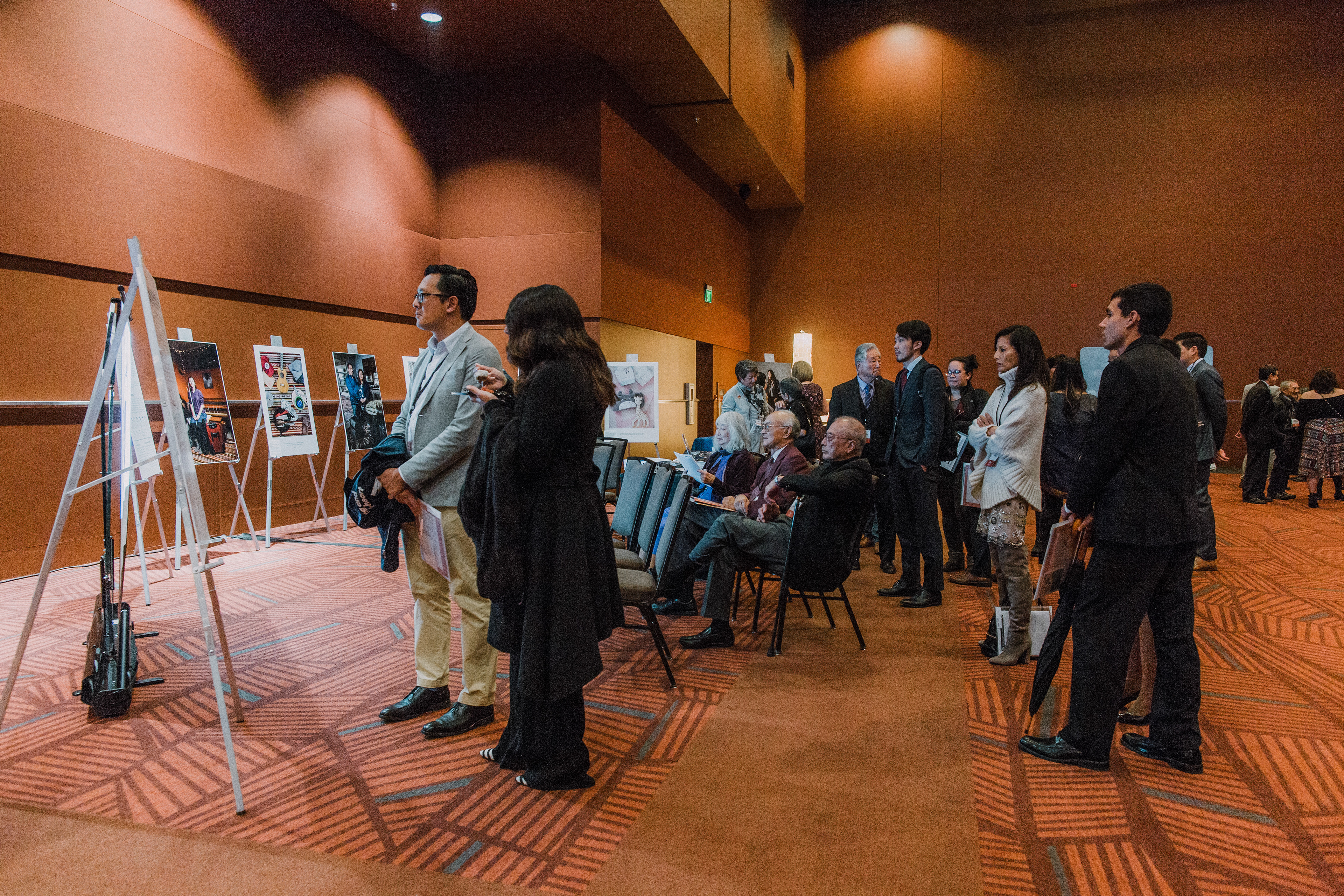
The Suitcase Project made its debut in the United States earlier this month as a pop-up exhibit at a fundraising dinner with more than 600 attendees.
Organized by Densho, a Seattle-based organization founded on preserving Japanese American oral histories, Densho Dinner was held on November 3, 2018 in Bellevue, Washington.
While the event included dinner and a silent auction, at the forefront was a showcase of arts from the perspective of young Nikkei (people of Japanese descent).
Aside from The Suitcase Project—which offered a view of short documentaries, a catalogue featuring each participant and some of their packed items, and a combination of infographics, exhibit information and large photography elements from the original exhibit—Kurt Yokoyama Ikeda, educator and poet, performed a spoken word piece about baseball and incarceration, Sean Miura, a Los Angeles-based writer and community organizer, shared words about art, activism and resistance, and Natasha Varner, Densho Communications and Public Engagement Director, allowed us to see the work being created from Densho's artist-in-residence program (see: films, illustrations, murals, and music)
I'm always amazed when organizations like Densho allow individuals like myself, Kurt and Sean to take the lead, and use our voices to show how the history of internment and incarceration has impacted our work as young Japanese Canadians and Americans.
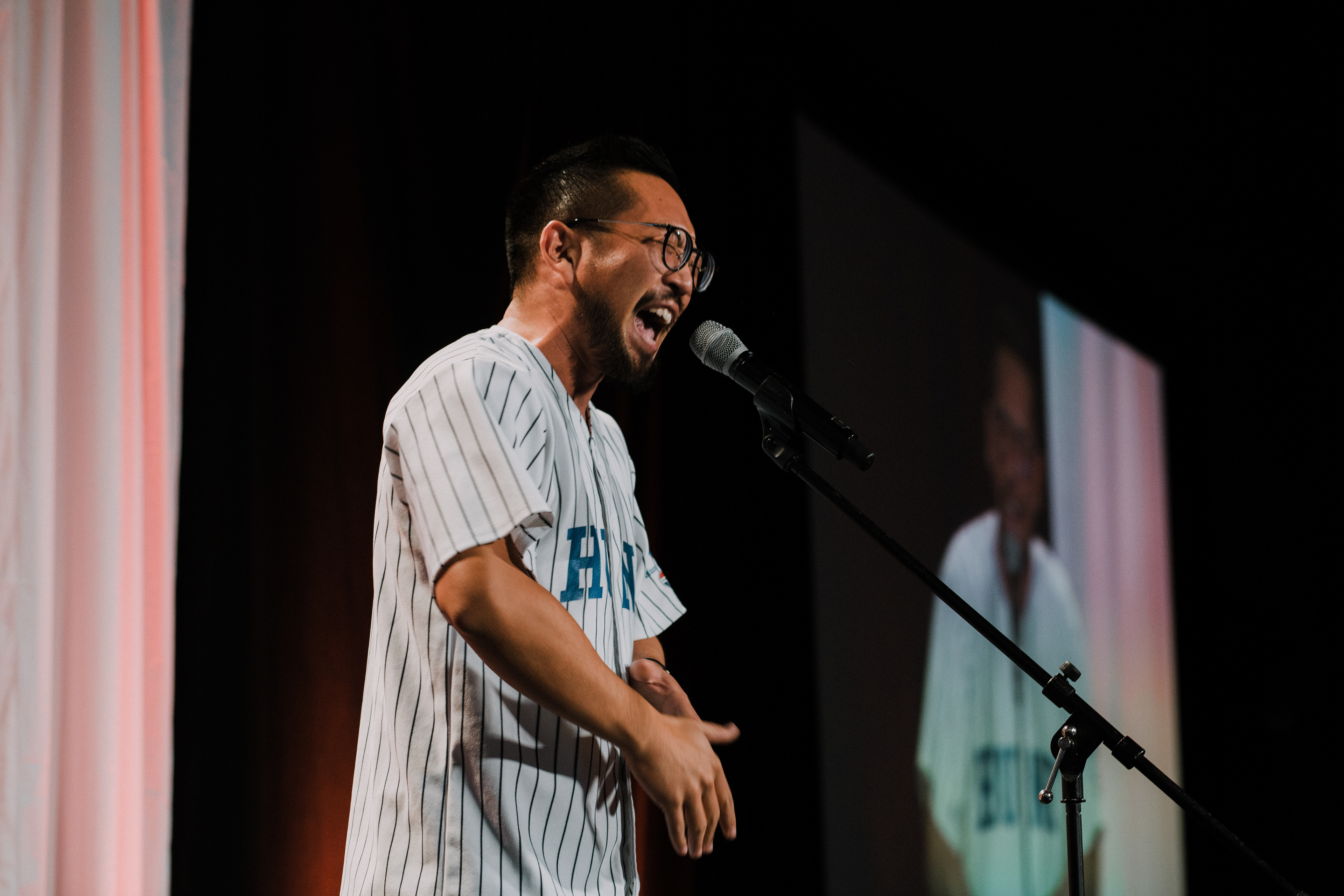
Kurt Yokoyama Ikeda
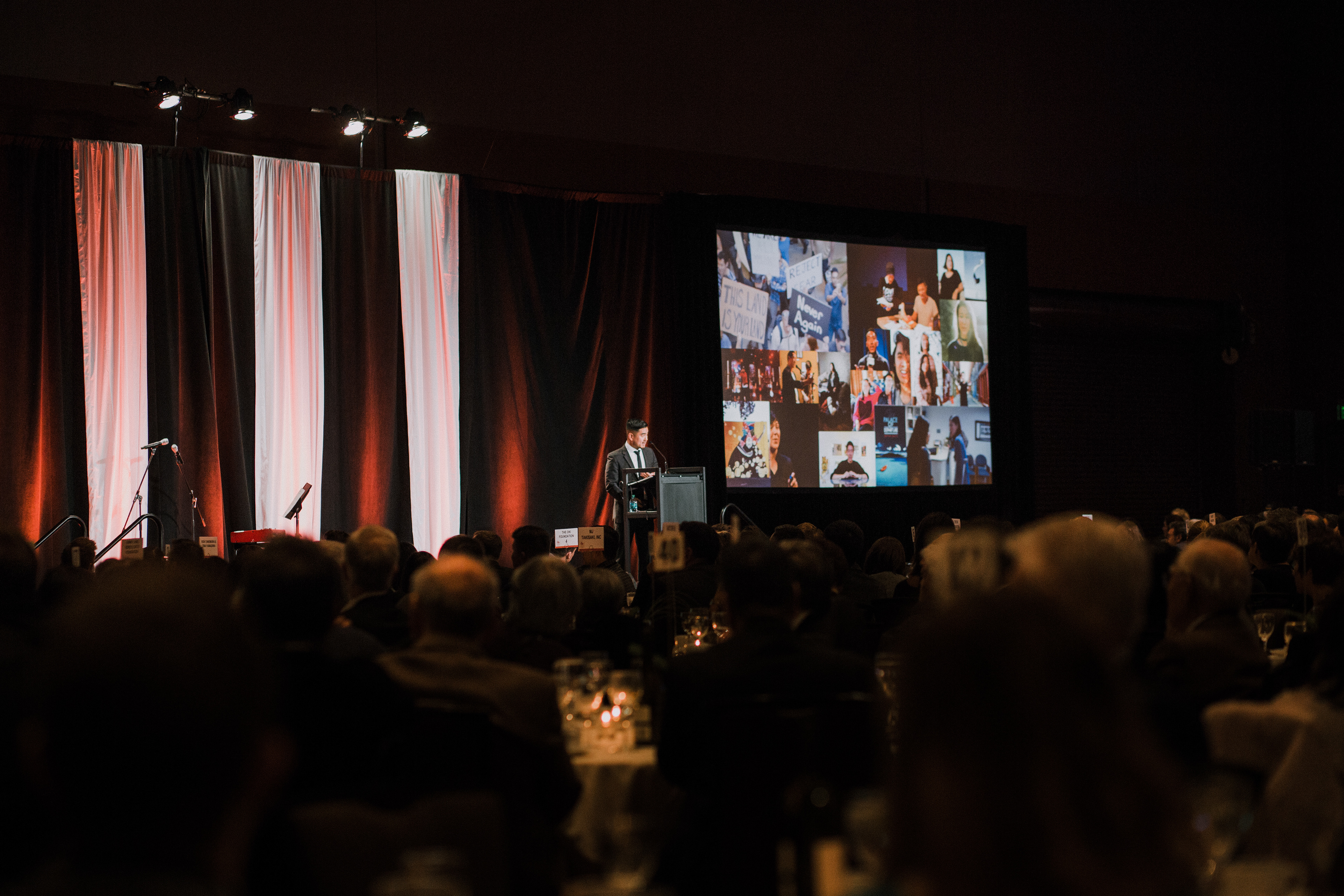
Sean Miura
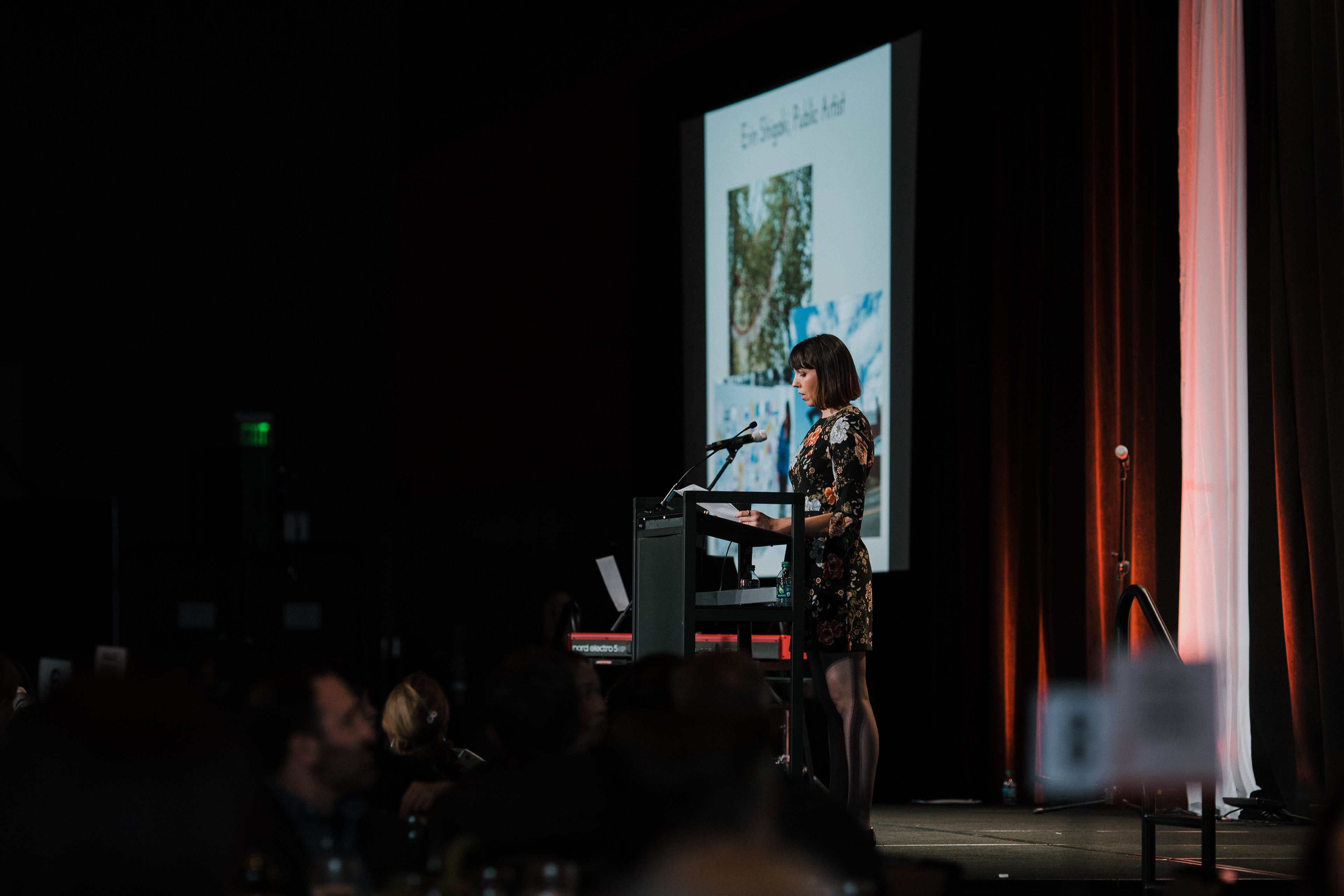
Natasha Varner
Listening to words shared by Kurt and Sean, and seeing film work produced by director Tani Ikeda and musician Kishi Bashi was really powerful. I was reminded that the work in which we all do can make an impact, whether on one individual or a whole group of individuals.
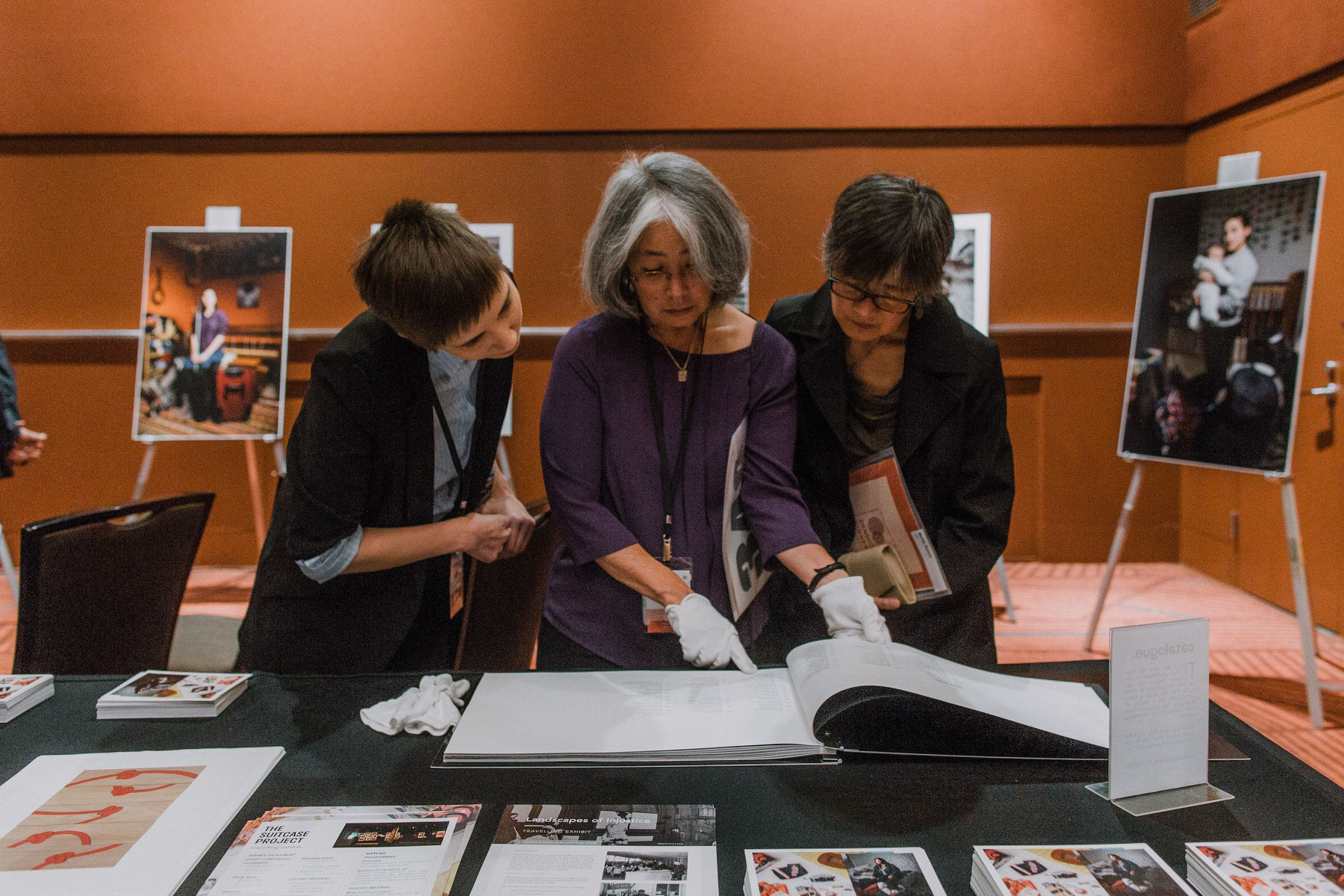
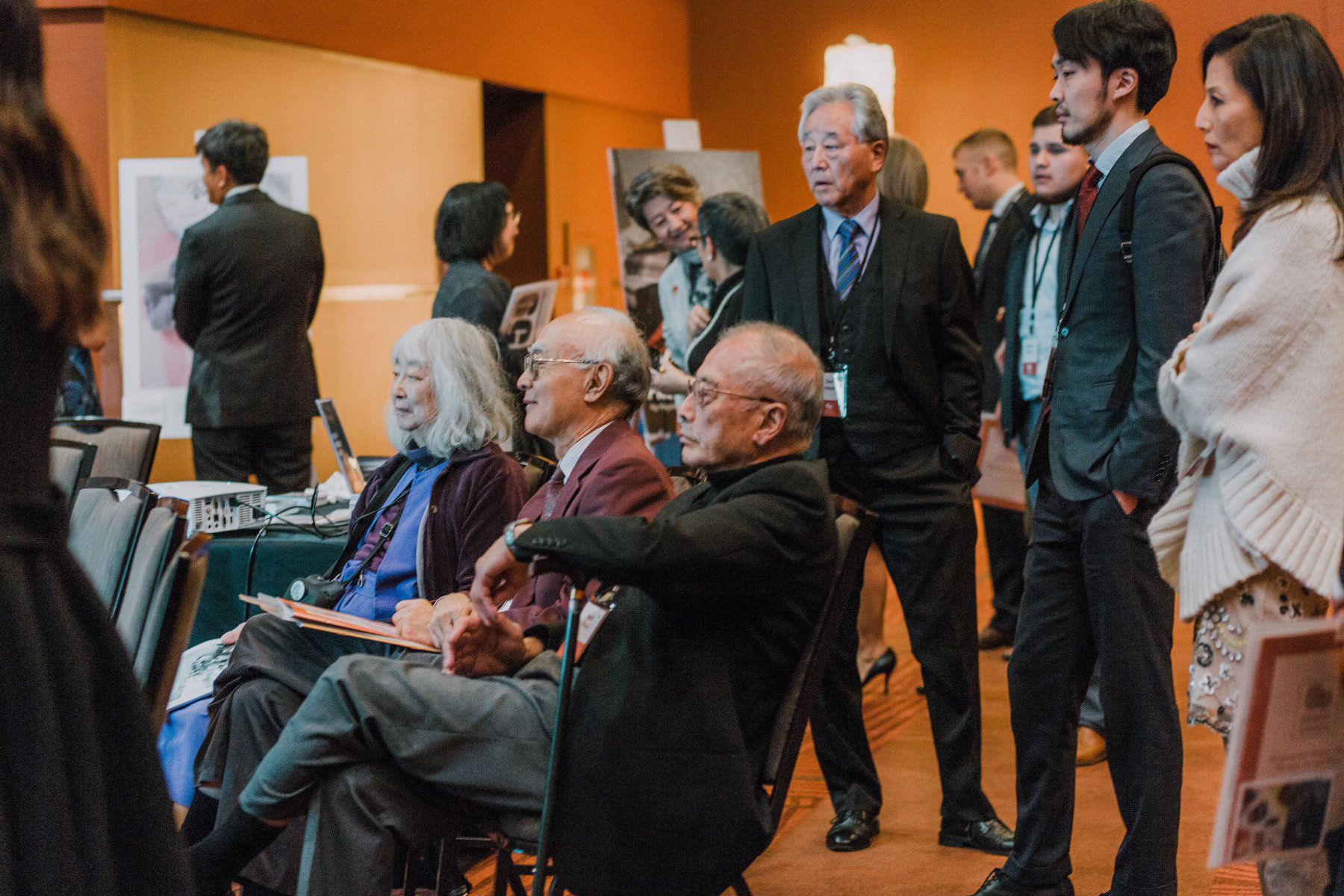
This notion of creating an impact was one of the reasons I was thrilled to feature The Suitcase Project at this year's event. Over this past year, I've realized the conversations that have sparked from the exhibit, whether they are reflections of our generations and the lasting impacts of internment and incarceration, or a discussion on current issues of race politics. Roughly half of the participants in the exhibit are Japanese American as well, predominately living in Western Washington. Having yet to present The Suitcase Project outside of the Nikkei National Museum, Densho Dinner provided a great opportunity to introduce the thoughts of these participants to such a large audience over a single evening.
More so, what better place to showcase the exhibit than with my first connection to the Japanese American community? Last fall, I was introduced to Densho through a tweet about their first Densho Dinner. I responded to their search for a photographer out of curiosity, wondering if I could learn much about the Japanese American community through attending this event. Troy Osaki, a local poet and community organizer (also a mixed yonsei (fourth generation) Japanese American), performed and I decided to extend my call for Suitcase Project participants to Japanese Americans living in Seattle.
Once I began my research to include Japanese American history, Densho immediately became my main resource.
In essence, I really appreciate how full circle everything's become. Even before attending the event, I knew I would know at least a handful of folks in attendance. Floating around the floorspace, I was able to catch hoards of people absorbed in the exhibit films and flipping through the catalogue. A number of participants from the exhibit were there as well out of general support for Densho.
This is only the beginning of The Suitcase Project making an appearance in the US. Next time, I hope to bring it down in its fuller form in a more permanent temporary space! If you are interested in bringing it to your city, please do get in touch. I would love to hear from you.
Thank you,
-k
